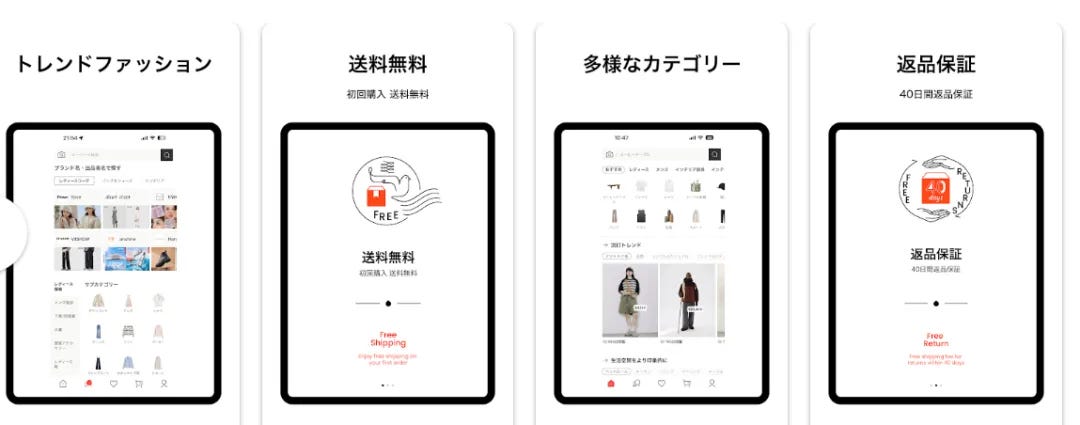Alibaba has quietly introduced a new shopping app in Japan, named "TAO", according to a report from Yahoo Japan. The app's name is likely a nod to "TaoBao", indicating that it's part of the company's broader push to expand its overseas business.
The launch comes as Chinese e-commerce firms including Shein and Temu ramp up their presence in Japan, prompting Alibaba to enter the fray. With its vast inventory of goods and extensive merchant network, Alibaba is well-positioned to tap into Japa's growing market. Meanwhile, Alibaba's domestic platforms, Taobao and Tmall, face intensifying competition at home from rivals like JD.com, Pinduoduo, and content-driven platforms such as Douyin, Kuaishou, and Xiaohongshu.
Pinduoduo reported its first-quarter earnings for 2024 on May 23, with total revenue reaching $12.22 billion, a 131% increase year-over-year. Following the announcement, its stock surged, pushing its market cap to $204.3 billion, overtaking Alibaba to become the most valuable U.S.-listed Chinese e-commerce company, a position Alibaba had long held.
According to the JETRO's Global Trade and Investment Report 2024, Amazon ranks first among cross-border platforms with a 24% share, followed by Alibaba and AliExpress at 16%. Shein and Temu take third and fourth places, respectively. Temu was also the most downloaded shopping app globally in 2023.
So, who will TAO be up against in Japan? And who's most likely to feel the impact?
Rakuten and Yahoo! Japan Shopping are the top local platforms, joined by U.S.-based Amazon and China's Temu and Shein. Each of these platforms plays to its strengths: Rakuten focuses on making shopping more engaging, Amazon excels in fast delivery and simplicity, while Temu and Shein offer affordable pricing and a huge selection. Yahoo! Japan, on the other hand, relies heavily on traffic from social media and search.
TAO may not be ready to take on giants like Rakuten and Amazon in the Japanese market. For now, its best move could be to go for Temu's low prices and take a swing at Shein's fashion line.
According to a press release from Alibaba International Digital Commerce Group (AIDC):
TAO will leverage Taobao's strengths, offering quality products that match Japanese customers' tastes and preferences at affordable prices. TAO also offers an engaging shopping experience that uses vibrant visuals to create a desire to buy—more images, richer displays, similar to Rakuten's style—so Japanese users can shop with ease.
In March 2023, AIDC established Taobao Japan, with the goal of making TAO a trusted online marketplace firmly rooted in Japan.
Currently, TAO offers over 3 million products, spanning categories such as fashion and accessories, home furnishings, bedding and bath items, outdoor gear, pet supplies, kitchenware, and office supplies. Looking ahead, we plan to further expand our offerings in both number and variety.
TAO comes equipped with several features designed specifically for the Japanese market. Its website design and interface, crafted by well-known web/UI designer Ryoji Tanaka, are built to balance visual appeal with functionality. The app offers product recommendations based on different themes and scenarios, giving users a sense of discovery as they browse. It also includes social features, such as the ability to share favorite lists and interact with other users.
TAO partners with leading Japanese carriers like Yamato and Sagawa, to ensure secure and reliable deliveries. Customers also enjoy free returns within 40 days of purchase. Payment options are flexible, including credit cards, PayPay, convenience store payments, and Pay-easy, with safety protections in place.
First-time users get free shipping, and orders over 3,500 yen ($22.75) qualify for free shipping on subsequent purchases.
TAO also has a dedicated Japanese customer service team for app chat, hotline, and email to provide prompt support without time zone hassles.
From the announcements, several key points stand out:
While TAO offers a wide range of products, apparel remains its primary focus for now. The platform emphasizes rich product information and leverages Taobao and Tmall's vast inventory, positioning itself for future expansion.
TAO seems to have learned from Temu's challenges, enlisting a renowned designer for its overall website design and integrating PayPay, Japan's most popular mobile payment system. It also implemented a quick-response system to improve communication with users.
First-time users enjoy free shipping, with free delivery on subsequent orders over 3,500 yen. This aligns with common practices on Japanese e-commerce platforms, and customers can return or exchange items for free within 40 days.
As of now, it remains unclear whether TAO will open its marketplace to third-party sellers. An official seller recruitment manager indicated that TAO is still in the early stages, with a relatively small recruitment team. Initially, TAO will primarily work with existing merchants on Tmall and Taobao, with plans to gradually bring in professional sellers and factories from Japan. In summary, the platform is just testing the waters for now.






